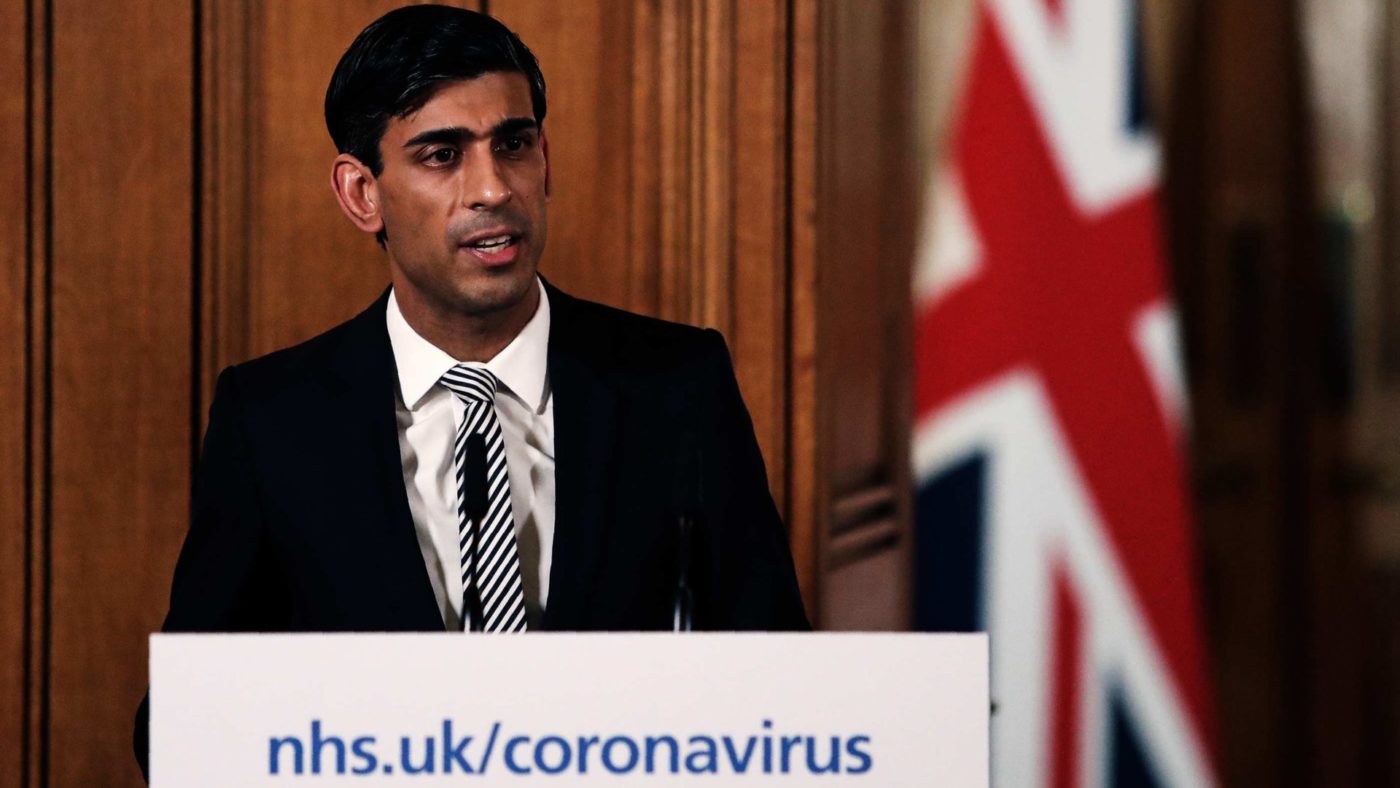At this rate we shall soon find it easier to count the evenings when Rishi Sunak is not announcing multi-billion economic rescue packages. Last night, finally, it was the turn of Britain’s self-employed and gig economy workers. Mirroring the wage subsidy scheme for employees, taxable grants will now cover 80% of a self-employee’s average profit from the last three years, capped at £2500, for at least three months. If three years of HMRC data is not available, the replacement rate will be calculated on two or one year’s worth instead.
With such huge and urgent announcements, it is easy to rush straight to the inevitable design flaws. To do that now in the face of what is, by international standards, a well-funded package would be excessively churlish. The bottom line is that compared with yesterday millions of self-employed workers have a path towards more financial security. The generosity, at approximately £3bn a month, is not to be sniffed at.
Still, it would be wrong not to point out some problems with the new arrangement. Throughout this crisis I have described the Chancellor’s announcements as ‘fiscal colanders’ – the same is true of this one. The main group that slip through the holes this time are new entrepreneurs without yet a year of accounting data – for them there is only the already creaking Universal Credit system.
There are operational issues too – solo entrepreneurship can be tough, many struggle to turn a profit initially and therefore there are worries pegging income to profits not earnings will still see many in hardship. More urgently, it is likely that even those eligible will have to wait until June to access support. Given median self-employee earnings are already well below employee wages – roughly £17k compared with £30k – and the self-employed remain ineligible for sickness entitlements, the concerns are that some will still feel pressured to break social distancing guidelines and work. Indeed, our most recent polling (conducted before this announcement) found that 47 per cent of self-employed workers would feel “obliged to work” even if they became unwell with Coronavirus. For more insecure workers the figure is even higher.
This need for speed is the main reason the RSA favoured an emergency basic income response instead. Under our proposals all those who declare self-employment to be their main source of income would receive an immediate cash grant of £1500, followed by £100 a week for three months thereafter. To be sure, our system would still rely on a rapid response from HMRC but without the need for earnings calculations or cumbersome eligibility screening, cash would surely reach pockets quicker. Naturally, all self-employed workers, including new entrepreneurs, would benefit from a universal approach. And our modelling shows that for self-employees earning less than £20,000, such as those working in the gig economy, a basic income would likely be more generous than the Government’s scheme.
However, also – cards on the table – we believe a basic income now would provide a better bridge beyond the crisis to the safety net we need for good work and a fairer society. Politicians, like generals, habitually find themselves fighting the last war – the great recession that followed the 2008 crisis was staggering in its lack of worklessness.
This is not the time to prosecute the case against austerity again, but one upshot of a high employment recession was how the injustice and inadequacy of our welfare settlement was largely shielded from wider political attention. Suffice to say, the coronavirus recession will not follow that path – data published yesterday on the US economy showed the largest rise in unemployment registrations in American history and by a huge margin too. That is but one straw in the wind of course and our economic response is certainly more advanced. Nevertheless, a lot of British workers have already lost jobs and despite the Chancellor’s efforts, that trend that will surely continue. Ignoring systemic welfare reform, even in the medium-term, will not be an option this time.
You could hear the faintest acknowledgement of this in Rishi Sunak’s suggestion yesterday that the self-employed and employee tax regimes need better harmonisation. But if we are to look again at the tax side of this equation we must also acknowledge how the self-employed lack the same pension, sickness and family leave entitlements as employees. ‘Portable benefit’ options that integrate these entitlements with workers who lack an employer to distribute them do exist, with trade unions often providing the intermediary infrastructure. But the truth is even these solutions would work better in a world where we all enjoyed a minimum entitlement to fall back upon in times of crisis.
Welfare universalism is not a new idea. Nor, to be blunt, is it a cheap one. Yet in a swoop, it does away with the punitive conditionality and pettifogging bureaucracy that have run roughshod over poorer people’s lives this past decade and which curtail the Chancellor’s responsiveness now. It also, as we reminded ourselves when clapping for the NHS last night, speaks to an “all in it together” solidarity that healthy societies need, both in crisis and beyond.
When we finally get through this, the Government should embrace it and explore a universal basic income.
Click here to subscribe to our daily briefing – the best pieces from CapX and across the web.
CapX depends on the generosity of its readers. If you value what we do, please consider making a donation.


